Anyone looking for an efficient and powerful engine should consider the Ram EcoDiesel. With the launch of the Ram 1500 pickup lineup in 2014, Ram introduced the EcoDiesel V6 engine. Due to their low fuel consumption and high power output, EcoDiesel engines are unique in the market. This entire scenario is made possible by advanced technology.
There has been a great deal of interest in Ram EcoDiesel trucks since they were introduced. There is, however, some variation in the quality of the models built throughout the years. Repairs and recalls are a common occurrence during some years.
You don’t need to abandon your plan to buy one. Please refrain from purchasing an EcoDiesel vehicle in 2014, 2015, 2016, and 2017 if this option is not acceptable to you. Here’s an in-depth guide to help you understand what years you should avoid when purchasing EcoDiesel.
Introducing Ram EcoDiesel
A popular Ram pickup line, the Ram 1500, now comes with an EcoDieserl option. The fuel economy and towing capacity of this vehicle are higher than those of gasoline counterparts. There have been three generations of this engine over the past decade. Third-generation builds improved torque, horsepower, and towing capacity compared to the first two generations.
Automakers gained a lot of success with Ram’s EcoDiesel V6 engine. A production halt occurred in 2023, however.
4 Things To Avoid With Ram EcoDiesel
Ram engine problems are most prevalent in 2014, 2015, 2016, and 2017. There were problems with engine performance, emissions equipment, and EGR coolers in most of the worst years, while a few had additional issues of their own.
1. Ram EcoDiesel 2014
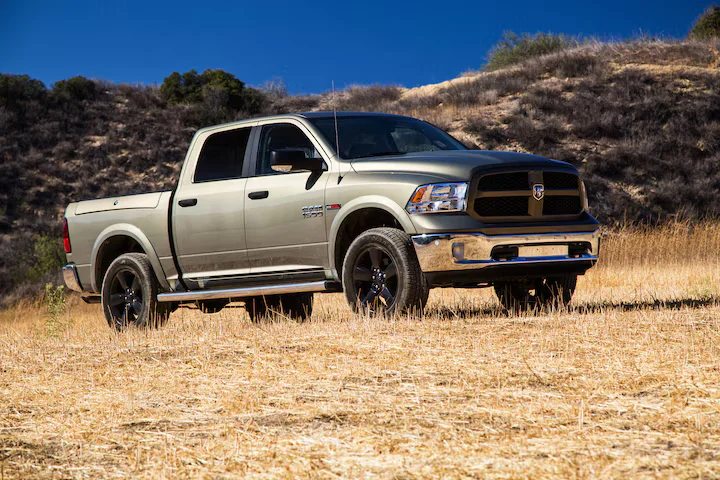
During the debut year of the brilliant Ram engine in 2014, there were a few teething problems. When new components are introduced to the market, most are not perfect. The 2014 EcoDiesel had some major problems that could not be ignored.
In addition to these issues, owners reported:
- Problems with engines: Engine reliability was a problem for early buyers. Several complaints were received, ranging from engine failure to loss of power.
- Problems with transmissions: Many buyers were dissatisfied with the transmission’s performance. It was sometimes annoying to accelerate or release the brake at low speeds and see the transmission change gear abnormally while moving, and to hear the transmission start loudly and raise the RPM even when not accelerating.
- Issues with the exhaust system: Another common issue faced by 2014 model year vehicles was the Diesel Particulate Filter (DPF). DPFs tended to fail more frequently as a result of frequent regeneration cycles.
- Some recalls are: Fourteen recalls have been issued for this model year, most of which are related to software updates for engine control modules (ECMs).
2. Ram EcoDiesel 2015
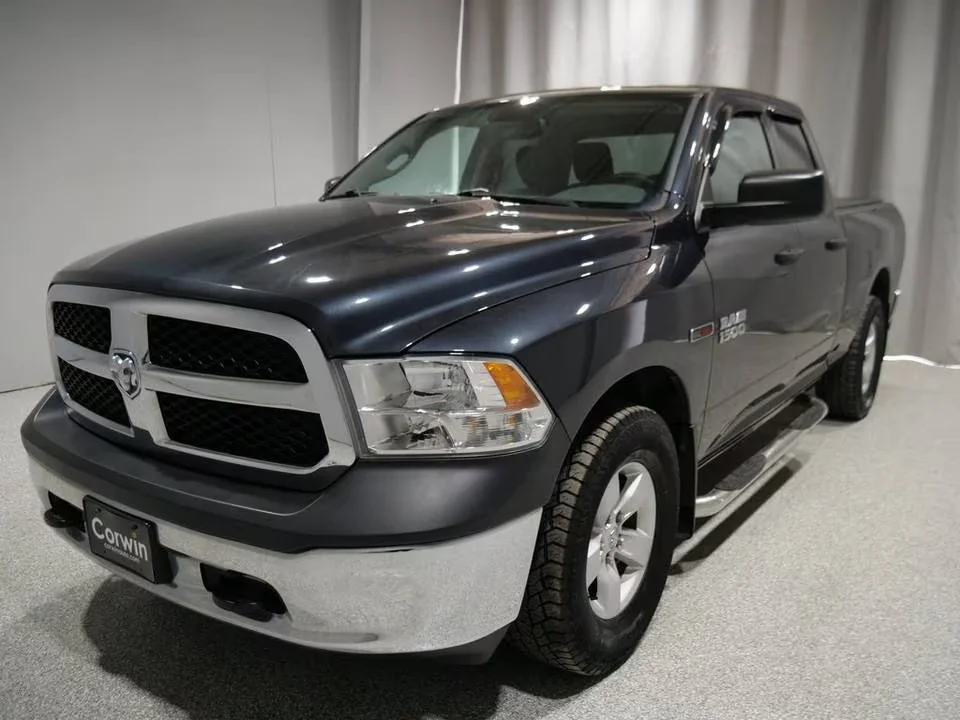
While the engine suffered from several problems in 2015, some improvements were made over the previous model year. For this engine, 17 recalls were issued, mostly for fuel systems and gearboxes.
The following prominent issues crippled owners:
- Problems with emission control: During 2014 and 2015, this issue continued to be a problem. There have been additional software updates and recalls related to this emissions control system problem.
- Failures of oil coolers: There have been several reports of oil cooler failures, potentially causing engine damage.
- Issues with turbochargers: Some models exhibited turbocharger failures this year, but not many. Due to this, many people couldn’t afford to repair their appliances.
- Failed technologies: This model year also had a number of other problems, such as problems with the GPS and Uconnect systems, malfunctioning radios, and dashboard warning lights that came on without explanation.
3. Ram EcoDiesel 2016
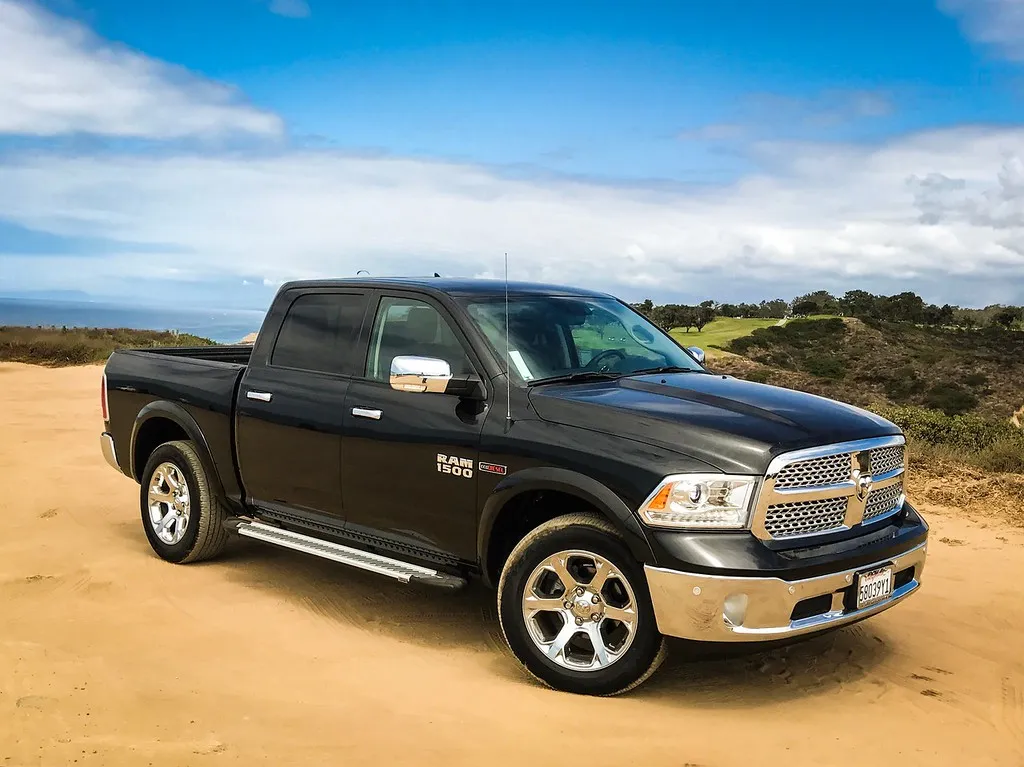
Following the model year 2016, here are some model years to avoid with Ram 1500 ecodiesel. The EcoDiesel still had some problems this year, though Ram had addressed some of the earlier problems.
This year, the vehicle has received 11 recalls. Among the problems were an inoperative SCR catalyst system, airbags that were not working, transmission linkages that were broken, cruise control problems, and difficulty opening the power doors.
EcoDiesel 2016 had the following issues:
- Failing EGR cooler: Coolant leaks and possible engine overheating were reported as a result of cracks in this year’s exhaust gas recirculation cooler. The engine could fail if left unchecked.
- Emissions System Woes: In this year’s emissions report, there were still issues. Selective Catalytic Reduction (SCR) problems have been reported by many owners.
4. Ram EcoDiesel 2017
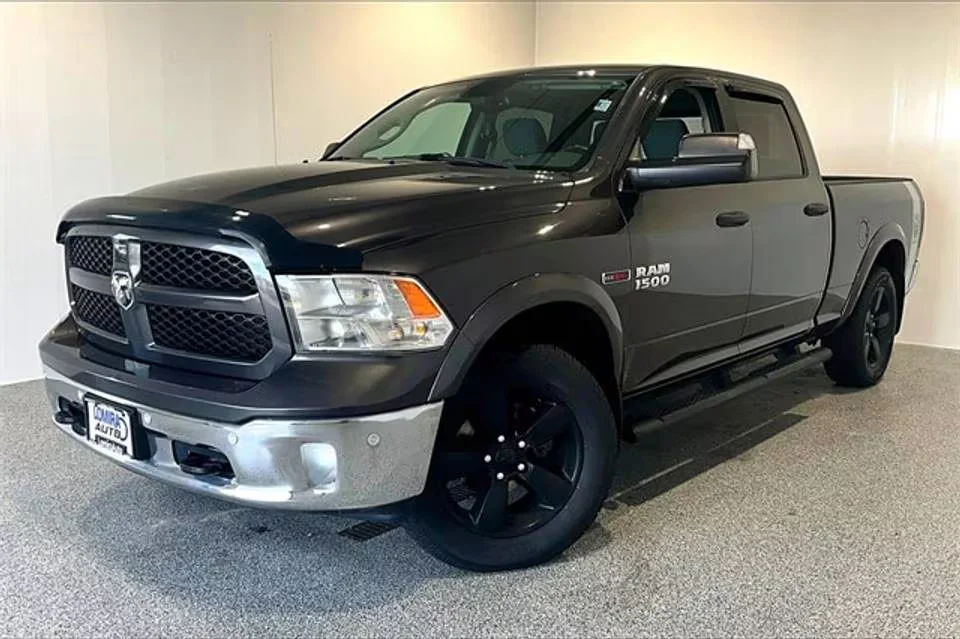
The EcoDiesel has shown continuous improvement over the course of its fourth year of production. Although some issues remained, others were resolved. People complained about leaks in the coolant, SCR/DPF issues, and shift issues with the transmission.
- Issues with EGR coolers and turbochargers: In the 2017 model year, there were issues regarding EGR coolers and turbochargers. There had been numerous reports of problems from owners. The number of reports concerning these issues decreased from previous years.
- Problems with transmissions: It was not the first old transmission problem to make it this far. There has been a significant increase in the number of transmission problems reported by Ram EcoDiesel buyers, including rough shifting and transmission failures.
5. From 2018 onwards
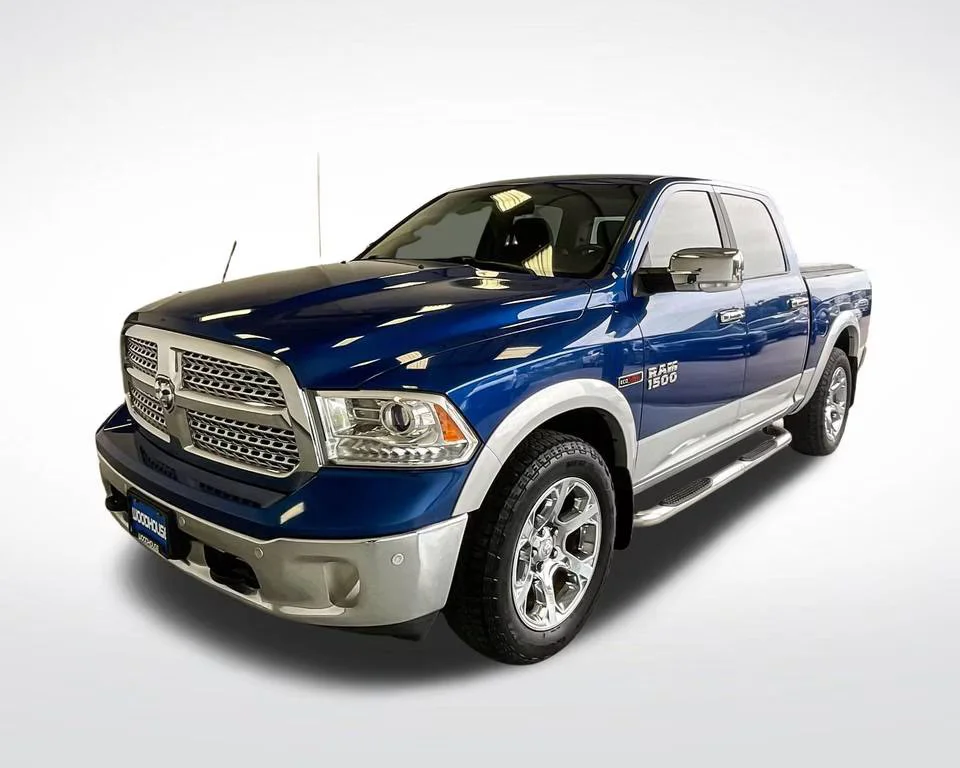
Ram EcoDiesel models have shown improved reliability since 2018. There were fewer complaints and recalls in this later model year compared to the worst engine years.
Performance and durability will also be improved by the next generation of EcoDiesel engines.
Common problems with Ram EcoDiesel
Several Ram EcoDiesel models have experienced significant problems since they were first introduced, but they have become increasingly popular. Also, the Ram EcoDiesel has some minor problems.
A number of problems exist, including:
- Troubleshooting fuel injection systems
- Cooler for EGR cracked
- Failure of the turbocharger
- Troubleshooting glow plugs
- Problems with oil coolers
TIPM, timing chain, and exhaust problems are some of the minor problems with EcoDiesel engines. This problem and its solution should be discussed in detail.
1. Issues with fuel injection systems
The fuel injection system of an EcoDiesel engine often fails after 100,000 miles. Having a diesel engine that releases a lot of particulates requires regular maintenance to maintain its performance. Eco Diesels with poor maintenance often have inefficient fuel injection.
There have been no fuel-related problems reported by Ram engine manufacturers regarding their new engines. Although this is true in theory, it is not true in practice. After 100,000 miles, EcoDiesel engines consistently experience fuel-related problems.
Most Ram EcoDiesel models are affected by this problem. The only way to avoid fuel-related problems in the Ram EcoDiesel is to perform routine maintenance, fix the fuel line, and replace the fuel filter on time.
2. EGR cooling system crack
The majority of drivers reported that they had problems with the cooling systems for their exhaust gas recirculation systems and their diesel particulate filters (DPFs). A cooling system is built into the EcoDiesel engines. Most EcoDiesel engine problems are caused by damaged cooling systems, cracked EGR valves, and leaky antifreeze.
Ram 1500 models produced in 2014 and 2015 suffered from these problems severely. Generally, EGR system failure occurs most often in old EcoDiesel engines.
EcoDiesel hoses and the engine’s cooling quality have been reported as being unsatisfactory by customers.
It may be possible to fix the EGR cooling issue with a software update and cleaning. EGR valves and other components are usually responsible for most cooling problems.
3. Failure of the turbocharger
Turbo failures are caused by a large number of defective parts in EcoDiesel engines. The main causes of oil leaks are faulty oil seals, damaged compressors, worn bearings, malfunctioning turbine wheels, and stuck vacuum generators.
The turbocharger eventually fails as a result of these problems. There is an estimated cost of $400 to $4,000 for fixing turbocharger problems. Thus, Ram’s turbocharger for the EcoDiesel engine is considered to be a major problem.
4. Glow plugs blown by air
It has been reported by the NHTSA that a Ram EcoDiesel engine has starting problems. In the reports of the users, the truck does not start when the ignition key is turned. A blown glow plug or damaged glow plugs are usually responsible for the Ram truck’s starting problem.
The main symptom of blown glow plugs is white smoke coming from the exhaust pipe. A Ram glow plug should be replaced after 100,000 miles if it has been driven for 90,000 to 120,000 miles.
Glow plugs can fail prematurely due to the following problems:
- Supply of electricity is unstable
- Wiring damage
- Electrification without control
- Heat-related problems with engines
5. Malfunctioning of the oil cooling system
Many EcoDiesel engines have overheating problems. Ineffective coolers are the main cause of the problem. A poor or inappropriate design resulted in a rapid failure for EcoDiesel’s oil cooler. After about 20,000 to 30,000 miles, an engine’s oil cooler was likely to fail if not properly maintained.
An overheated cooling system and oil pollution result from cracks in the cooler. A result of this is a rapid rise in oil temperature. As a result of oil contamination and overheating, the EcoDiesel engine’s lifespan will be shortened.
With time, corrosion cracks the oil cooler. It is important to keep the oil cooler maintained in order to prevent the accumulation of corrosive elements. The problem can be fixed by re-coring if any leak develops. It is however important for EcoDiesel engines to receive appropriate maintenance and care.
6. Issues related to TIPM
TIPMs (Totally Integrated Power Modules) have not been plagued with widespread problems, but they should not be ignored. This problem occurs in some Ram EcoDiesels. Many conditions can be caused by a faulty TIPM, including a malfunctioning AC system, a malfunctioning power window, and a faulty coolant fan.
A professional technician should be consulted if the TIPM on your Ram truck is broken. The faulty parts of the TIPM can be replaced by a technician to fix it correctly.
7. Slippage issues with timing chains
Timing chains fail on some Ram Eco Diesels. The pistons and valve timing intervals were replaced in the 2022 model year by Ram to fix the problem.
Timing chains still slip for some users, however. This problem is indicated by unusual engine sounds. Due to the high cost of repairing the timing chain issue, the timing chain issue is important to discuss in EcoDiesel engines despite its rarity.
You should inspect the timing chain before it is too late if you are experiencing unusual sounds, engine starting issues, or vibrations while accelerating.
Ram EcoDiesel Purchase Years
EcoDiesel engines were a delight to Ram fans despite the many problems they faced. The later versions of the software were more reliable and better than the older ones.
For this Ram engine, the most ideal years are 2018, 2021, and 2022. There were fewer issues, fewer complaints from owners, fewer recalls, and a higher degree of reliability in engines from these model years.
EcoDiesel improvements continued after the 2018 model year. A top eco-diesel engine will be available in 2021. Several owners report that the 2021 EcoDiesel generates more power, is quieter, and consumes less fuel. Power and torque are 260 horsepower and 480 lb-ft, respectively.
Moreover, it has a towing capacity of 12,570 pounds as well as a payload capacity of 2040 pounds. During its best years, this vehicle averaged 22 mpg in the city and 31 mpg on the highway. Thus, EcoDiesel is more efficient and has a better power output in its best years.
Maintenance schedule for Ram EcoDiesel vehicles
In order for your EcoDiesel engine to last as long as possible, maintenance is crucial. Keep your ride running smoothly for years to come with these maintenance tips and schedules.
- Oil for engines: If your vehicle’s owner’s manual specifies an engine oil, use it. Every 10,000 miles, you should change your engine oil.
- Filter for fuel: In order for fuel to reach the engine, it must be free of contaminants. Over time, contamination gets embedded in the filter itself. The engine can suffer severe damage if it is left unattended. Every time you change your engine oil, change the fuel filter as well. After 30,000 miles, a fuel filter should be replaced.
- Differences: Each 20,000 miles your vehicle travels, you should change its differentials.
- Transmission Case Fluid: Every 30,000 to 65,000 miles, transfer case fluid should be changed. Consult the owner’s manual to be sure.
The RAM EcoDiesel engine was discontinued for what reason?
Its only remaining in-house diesel engine was pulled from production before it even reached ten years in production. As RAM’s electrified future does not include the EcoDiesel engine, production of the RAM 1500 EcoDiesel concluded in 2023. Additionally, RAM will unveil the RAM 1500 EV in 2025, which will be the company’s first electric pick-up truck.
In a similar way to the Volkswagen emissions scandal in 2015, FCA’s decision to move to electric was made just a month after the company was sentenced to pay $300 million in diesel emissions cheating.
It is far more reliable than RAM’s gasoline counterparts when it comes to eco-diesel vehicles. Proper maintenance can extend the life of an EcoDiesel 1500. We still don’t fully understand diesel engines in general.
The redesigned engines of 2020-2023 will be the best after 2018 in terms of RAM EcoDiesel. If you ask me which year is better, I would say Ram EcoDiesel 2008.
Related Articles
Top 6 Rideshare Options For Small Groups
Buick Encore Years To Avoid 2024
Car Shake at Idle but Smooth Out While Driving
Frequently Asked Questions
What years of the Ram EcoDiesel should be avoided?
The 2014, 2015, and 2016 model years of the Ram EcoDiesel are generally advised to be avoided due to a high incidence of problems reported by users. These years have been identified as having the most significant reliability issues.
What specific problems are associated with the 2014 Ram EcoDiesel?
The 2014 Ram EcoDiesel has been reported to suffer from various issues, including:
Fuel injection system failures
Cracked EGR cooler
Turbocharger failures
Glow plug problems
Oil cooler malfunctions.
Are there any notable issues with the 2015 Ram EcoDiesel?
Yes, the 2015 model year is particularly problematic, featuring:
17 recalls, primarily related to engine and fuel system issues.
Common complaints include persistent electrical problems and failures in the GPS and Uconnect systems.
Many owners report that issues often reoccur even after repairs.
What about the 2016 Ram EcoDiesel?
The 2016 model year shows some improvements but still has notable issues, including:
11 recalls, with significant concerns surrounding the SCR catalyst system failure.
Problems with power door locks, rear tailgates, airbag malfunctions, and cruise control issues have also been reported.
Are there any other years that should be avoided?
Some forums suggest avoiding all EcoDiesel models from 2014 to 2018 due to ongoing reliability concerns. The models from these years share many mechanical components and issues, primarily related to emissions systems.
Which model years are considered more reliable?
The 2017 model year is seen as a turning point for the EcoDiesel line, with improvements that address many of the previous issues. The 2018 and later models have also been reported as more reliable, benefiting from design changes and better technology.
Conclusion
Buying used Ram Eco Diesels requires an understanding of the problematic release years, which is extremely important for those interested in the product. As a result of issues related to reliability, components, technology, and more, 2014 and 2015 were the worst model years for the engine.
As of 2018, model years 2018 onward are the best options for consider, while model years 2016 and 2017 did show some improvement, but still had some issues lingering.
![Ram EcoDiesel Years to Avoid 2024 [Explained] Ram EcoDiesel Years to Avoid](https://carscure.com/wp-content/uploads/2024/09/Ram-EcoDiesel-Years-to-Avoid-1.webp)